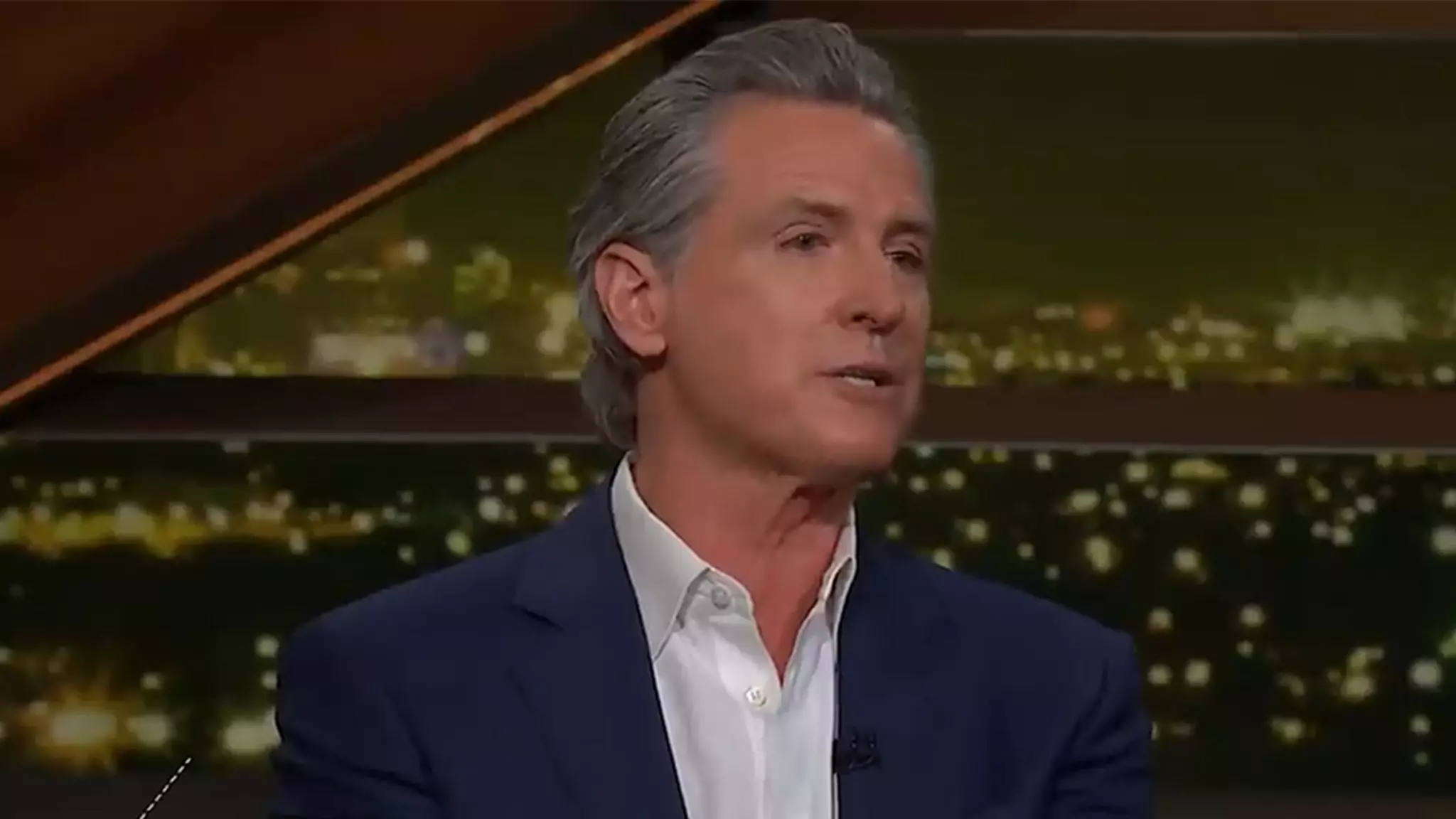In a politically fragmented landscape, California Governor Gavin Newsom is stepping outside the comfort zone of partisanship with his podcast, “This Is Gavin Newsom.” During a recent appearance on Bill Maher’s “Real Time,” he made headlines by asserting that engaging conservative voices is not just strategic but necessary for Democrats striving to regain their footing in a challenging electoral environment. Newsom’s willingness to discuss ideas with prominent right-wing figures and controversial pundits, including Steve Bannon and Charlie Kirk, signals a fresh approach within the Democratic Party aimed at breaking down the silos that have characterized modern American politics.
A significant point made by Newsom is the acknowledgment of the current toxicity of the Democratic brand, which he believes has rendered the party less appealing to a vast segment of the electorate. While many Democrats view alignment with conservative ideologies as a betrayal to core values, Newsom posits that recognizing Republicans as legitimate dialogue partners is essential for restoring relevance and efficacy in Democratic messaging. This perspective challenges the notion of “platforming” individuals viewed as divisive, suggesting that confrontation through conversation can yield unexpected bridges over divisive chasms.
Bravery in the Face of Critique
Critics may position Newsom’s approach as a dangerous gamble that could alienate the progressive base, but the likelihood of electoral success hinges on a degree of ideological flexibility. Bill Maher echoed this sentiment, encouraging the Democrats to engage with their political adversaries, recognizing the reality that elections are won, or lost, in the voter psyche. The idea that Democrats must not only critique GOP policies but also understand and engage with their underlying sentiments presents a tactical pivot that could reshape electoral strategies.
Even as Maher criticized the increasingly cult-like following of former President Trump, advocating a return to individual thought in political discourse, he acknowledged the necessity for both parties to engage in self-reflection. This resonates profoundly in an age where ideological purity often supersedes pragmatic governance, suggesting that for true change to occur, both sides must take ownership of their failures and shortcomings.
Embracing Complexity in Political Identity
Newsom’s approach embraces a fundamental truth about contemporary politics: it thrives on complexity. By engaging with contrasting viewpoints without necessarily compromising his own, he advocates for a multifaceted approach to political identity. In doing so, he reframes the narrative around bipartisanship—not as a capitulation of values but as a proactive strategy to expand influence and foster understanding.
The call for shared discourse is not merely about appeasement; it represents a strategic necessity for Democrats, who face challenges not just from the opposing party but from within their own ranks. As both Newsom and Maher point out, without mutual recognition and willingness to negotiate, the stark polarization could eventually problematize democratic ideals to an extent that resembles autocratic governance. In a climate where political debate can often devolve into silos of intolerance, Newsom’s initiative suggests a rejuvenation, rallying the weary division towards a collaborative future.
The question remains how effectively the Democratic Party can adopt a mentality of dialogue and openness without diluting its identity. Newsom’s experiment will undoubtedly face challenges, but it promotes a crucial discourse on leadership in these contentious times, urging both sides to seek common ground while nurturing the democratic ideals that once united them.

